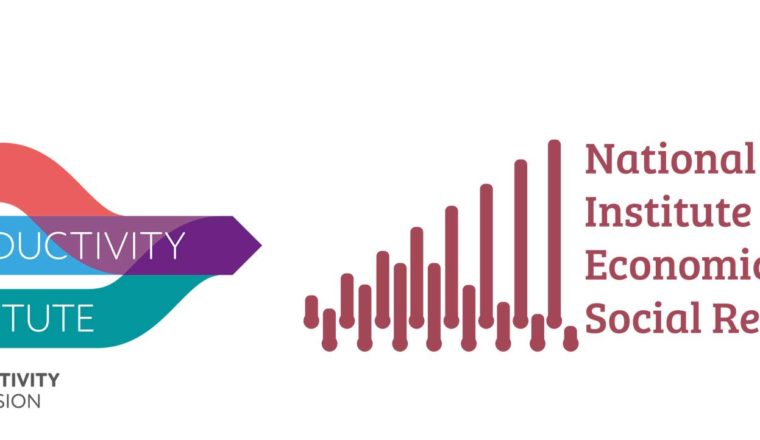UK Management: upward trend, but work to be done
This blog is written by Nicola Pike, The Productivity Institute’s Engagement and Impact Director and lead for the North West Productivity Forum.
The ONS has published its 2023 Management and Expectations Survey 1 (MES) and it paints an encouraging picture of improving management practices in UK businesses. The average score has risen from 0.51 in 2020 to 0.57 in 2023, indicating a shift towards more effective leadership.
This matters because productivity is statistically significantly related with higher management practice scores. A 1% increase in a firm’s labour productivity is correlated with a 0.01 increase in its management practice score.
Regional variations
The story is not the same across the country – while London and the East of England lead the pack, areas like Northern Ireland lag behind. However, there’s positive movement across the board, with all regions showing improvement since 2016. For more specific guidance on bolstering management practices in Northern Ireland, a working paper by the Northern Ireland Productivity Forum is a valuable resource. The forum is one of eight Productivity Forums from The Productivity Institute, all of which will be looking at what can be done locally to encourage firms to turn the dial in the right direction.
Sector and size matter
Industry also plays a role. The service sector takes the top spot, with information and communication leading the charge. Conversely, transportation and storage services bring up the rear.
The size of a firm seems to matter too. Larger companies, particularly those with over 250 employees, tend to score higher. This may be due to the resources and structure they can leverage for management development.
Links between management and technology adoption
Interestingly, the survey reveals a fascinating link between strong management and technology. Firms with higher scores are more likely to embrace cutting-edge technologies like Artificial Intelligence (AI) and data analysis for informed decision-making. This suggests a forward-thinking approach that harnesses technology for better outcomes.
The good news isn’t a fluke. Nearly 90% of surveyed firms reported taking steps to improve management. Consulting employees, participating in training programs, and engaging with government initiatives were the most common methods.
The need for increased investment and focus on management skills, particularly within technology sectors, was a recurring theme discussed in The Productivity Agenda.
Find the time
However, there are hurdles to overcome. Time constraints and a perception that things are already running smoothly were the most frequently cited barriers. Interestingly, firms with lower scores were less likely to participate in formal training, relying more on internal consultations.
The survey highlights the crucial role management plays in technology adoption, a key driver of productivity. Firms with better practices are more likely to embrace AI, particularly in production processes. This reinforces the importance of effective leadership in driving innovation.
Room for growth
The takeaway is clear: UK management is on the rise, but there’s room for growth. By addressing regional and industry gaps, overcoming time constraints, and encouraging broader participation in training, UK firms can further enhance their management practices. This will not only lead to better decision-making and improved productivity but also position them to embrace advanced technologies and thrive in the competitive landscape.
Background to the survey
The management practices scores were developed by Nick Bloom, Raffaela Sadun, John Van Reenen and co-authors across a series of academic projects and consist of four categories:
- Continuous improvement – how well firms monitor and adapt to unexpected situations
- Key performance indicators (KPIs) – their number and the frequency with which they are reviewed
- Targets – how targets are set, tracked and reviewed
- Employment practices – processes concerning promotion, management and training of employees
In the MES, representatives from firms are asked about the following:
- The use of targets and key performance indicators (KPIs)
- Employment and hiring decisions
- How their business responds to problems
- Information on their business’s current performance and future expectations (including turnover, investment, employment and spending on resources)
- Technologies used by this business
Management practice scores range from 0 to 1. Firms score 0 if they do not respond to ongoing problems, base promotion decisions on factors other than merit, and do not track performance or set targets. Conversely, to score 1, firms need to continuously review their processes with the aim to minimise future challenges, carry out regular performance reviews, train employees, and base hiring and promotion decisions on merit.
The Economics Statistics Centre of Excellence Conference on Economic Measurement 2024
On Friday 17 May, I took part in a panel discussion at the ESCoE conference about the MES alongside James Phipps from NESTA Innovation Growth Lab, Alexander Iosad from The Tony Blair Institute for Global Change and Rhys Humphries from the Office for National Statistics. The conference was held at Alliance Manchester Business School.
1 Office for National Statistics (ONS), released 13 May 2024, ONS website, statistical bulletin, Management practices in the UK: 2016 to 2023.




